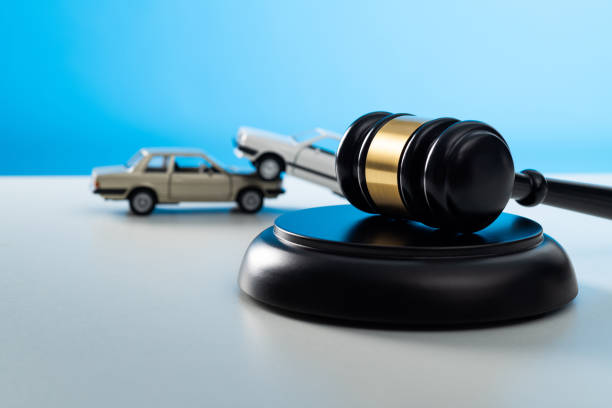Understanding Fault in Car Wrecks with Huntsville Car Accident Lawyers
Car accidents can leave drivers and passengers grappling with more than just physical injuries; understanding fault is often one of the trickiest aspects of these incidents. In Huntsville, AL, determining responsibility for a car wreck involves a mix of legal insights and factual evidence. Here’s a closer look at how fault is assessed with the help of a car accident lawyer in Huntsville, AL, and the factors that might surprise you.
Role of Traffic Violations in Determining Responsibility
Traffic violations play a critical role in figuring out who’s at fault in a car accident. When drivers break the rules of the road—speeding, running red lights, or failing to yield—their actions can clearly point to negligence. Police and insurance companies often scrutinize traffic infractions to determine how and why the accident occurred.
For instance, if one driver ran a stop sign and collided with another vehicle, the violation itself can serve as strong evidence of fault. However, it’s not always black and white. A car accident lawyer in Huntsville, AL, might uncover that the other driver was speeding, creating a shared responsibility. Understanding how multiple violations interact requires a deep dive into the circumstances surrounding the crash, and lawyers in Huntsville specialize in navigating these complexities.
Impact of Distracted Driving on Accident Outcomes
Distracted driving remains one of the leading causes of car accidents, and it’s a factor that lawyers carefully investigate when determining fault. From texting behind the wheel to eating or adjusting a GPS, distractions divert attention from the road and increase the likelihood of collisions.
In many cases, evidence of distracted driving may not be immediately obvious. A Huntsville AL car accident lawyer may look for clues such as phone records, witness statements, or even footage from nearby security cameras to prove negligence. What makes this issue even more complicated is that the distracted driver might not always admit their mistake. This is where legal expertise and a methodical approach become invaluable in holding the responsible party accountable.
Importance of Evidence from Dashcams and Photos
Dashcams and photos can significantly influence the determination of fault in a car accident. These tools provide an unbiased, real-time account of events, often filling in the gaps left by conflicting stories from the involved parties. A clear video showing another driver swerving into your lane or running a red light can save hours of debate and help your car accident lawyer build a solid case.
However, not all evidence is equally impactful. A blurry image or partial footage might require additional context to establish what happened. Huntsville AL car accident lawyers often work closely with experts to analyze such materials, ensuring that every piece of evidence is utilized effectively. If you’re in a wreck, snapping detailed photos of the scene, including vehicle damage and road conditions, can make a world of difference in determining responsibility.
Contribution of Weather Conditions to Fault Decisions
Weather conditions add a layer of complexity to determining fault. Rain, fog, or icy roads can lead to accidents where neither party seems clearly at fault. However, this doesn’t mean accountability is off the table. Drivers are expected to adjust their behavior to match weather conditions—slowing down, increasing following distances, and using appropriate lighting.
For example, if a driver was speeding during a heavy downpour and caused a crash, they could still be found negligent despite the weather playing a role. A car accident lawyer in Huntsville, AL, might also examine whether proper signage or road maintenance could have prevented the accident. Weather-related accidents require a thorough investigation to identify all contributing factors, making legal representation essential in ensuring fairness.
Significance of Police Reports in Assigning Blame
Police reports often serve as a cornerstone in determining fault after a car wreck. These reports typically include details about the accident, witness statements, and the responding officer’s opinion on who may be responsible. While not the final word in fault determination, they carry substantial weight in legal and insurance proceedings.
Huntsville AL car accident lawyers know how to analyze police reports for inconsistencies or inaccuracies. For instance, an officer might mistakenly attribute fault based on incomplete evidence. In such cases, your lawyer can help uncover additional proof, such as surveillance footage or expert analysis, to challenge the report’s findings. Relying solely on a police report can sometimes lead to an unfair outcome, so having legal support ensures all aspects are considered.
Common Misunderstandings About Shared Liability
Shared liability, or comparative fault, often confuses people involved in car accidents. Many assume that if they share any portion of the blame, they cannot recover damages. However, in Alabama’s contributory negligence system, even a slight percentage of fault could bar you from compensation, which makes understanding your role in the incident vital.
This strict approach means that a Huntsville AL car accident lawyer must carefully examine all aspects of the case to minimize shared liability. For example, if a driver was slightly over the speed limit but the other driver made an illegal turn, an attorney might argue that the illegal turn was the primary cause of the crash. Misunderstandings about shared liability can lead to lost claims, but with proper legal guidance, you can navigate these challenging scenarios.

